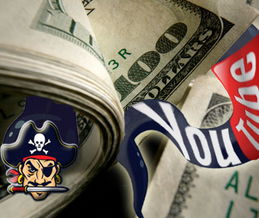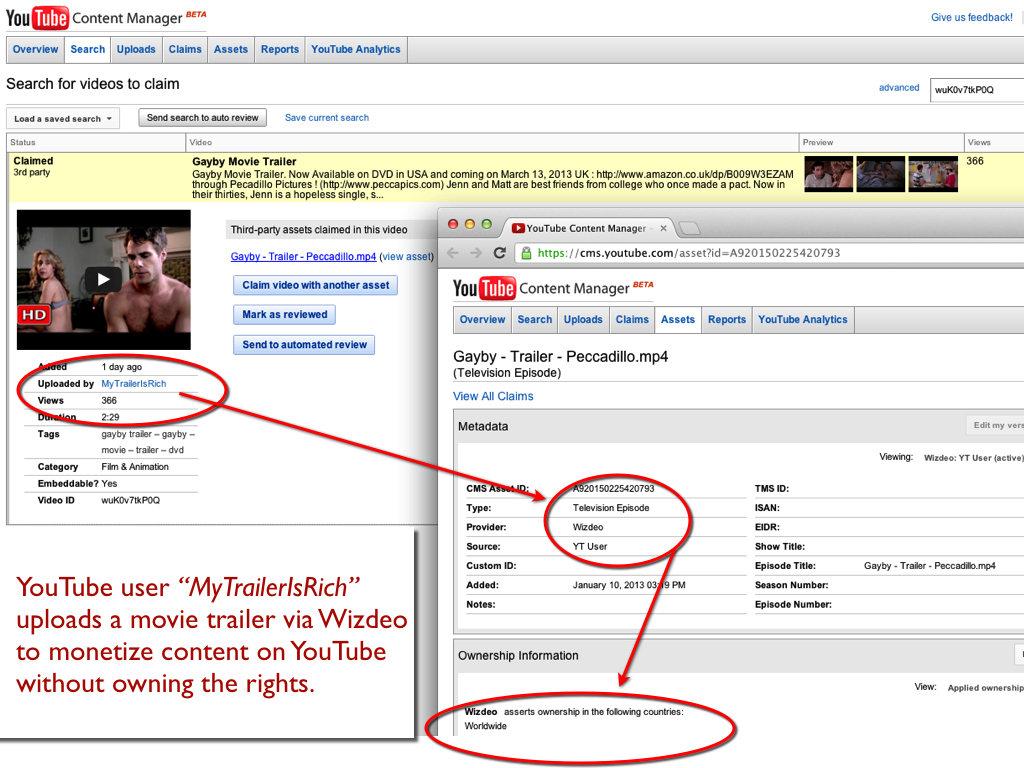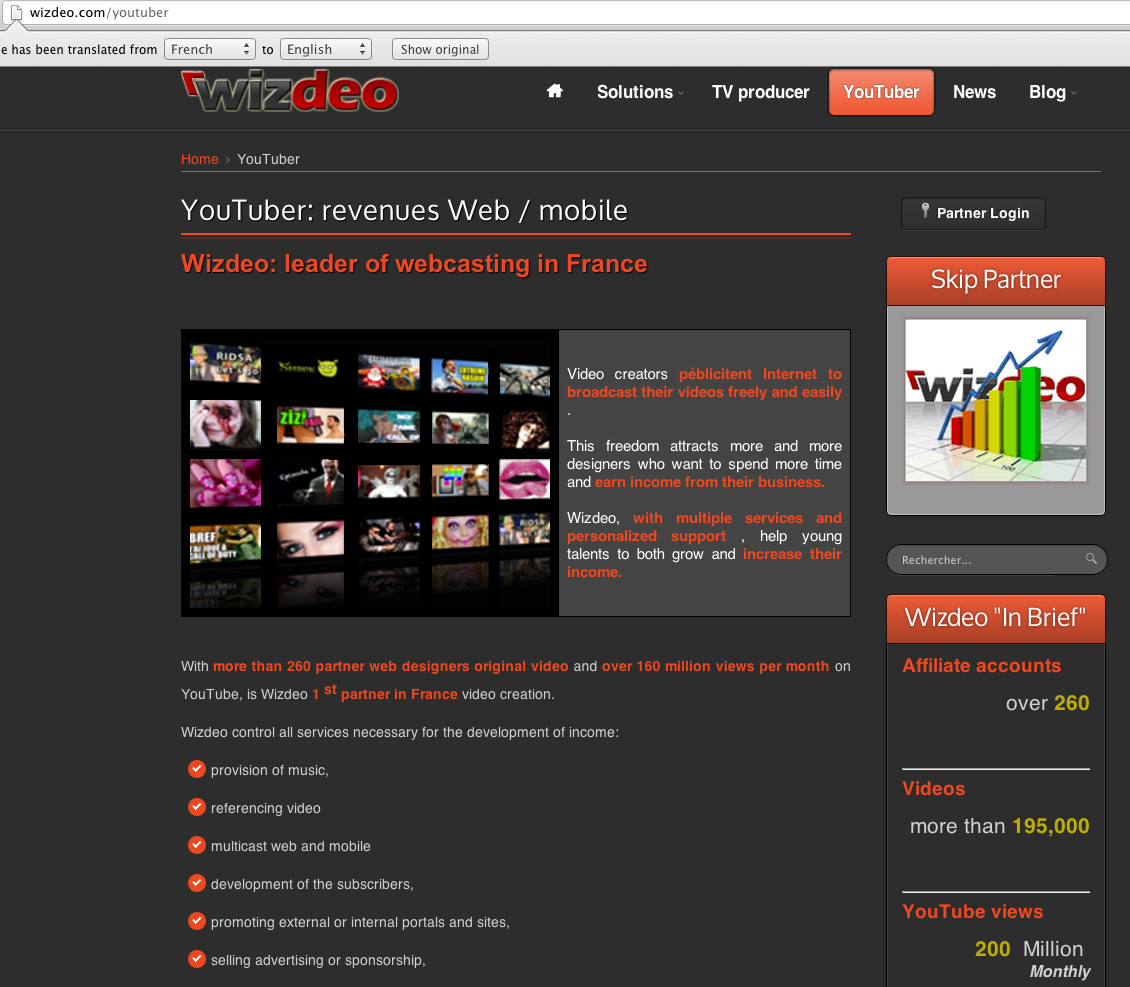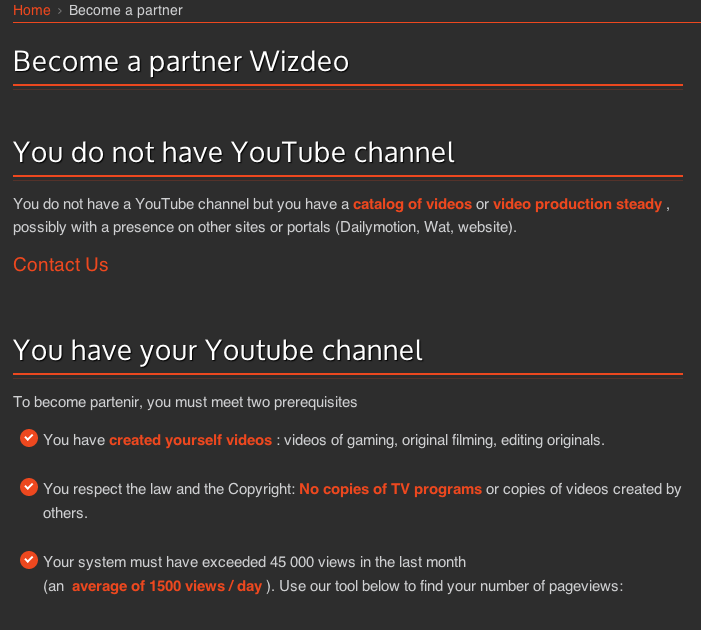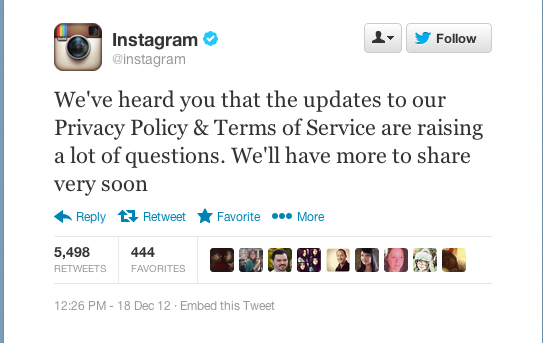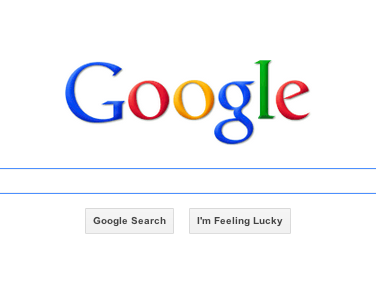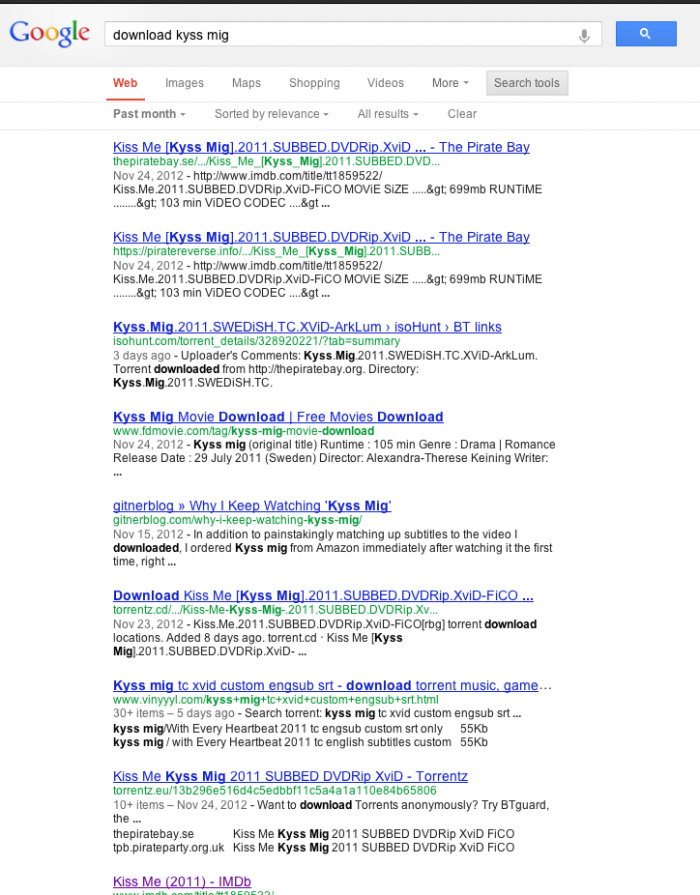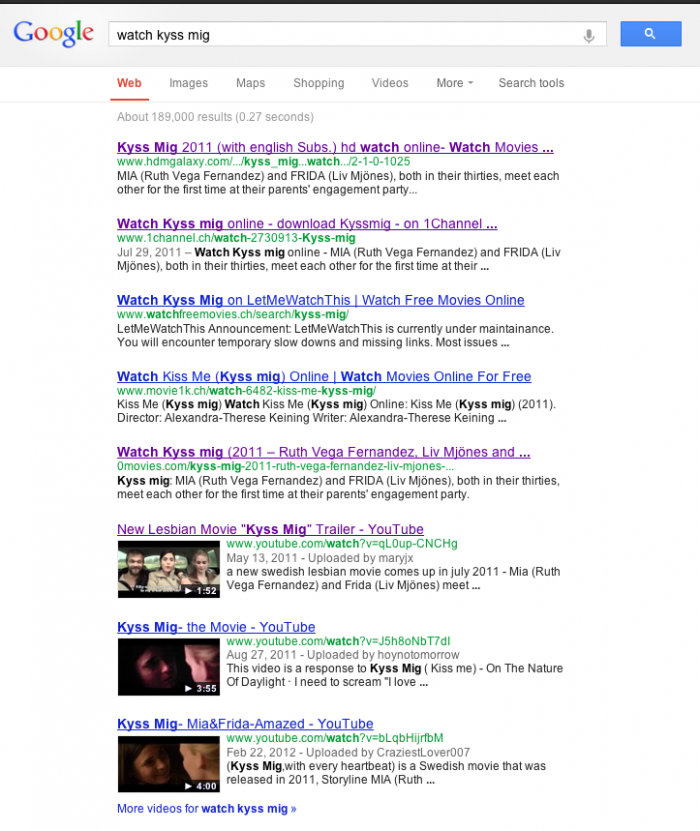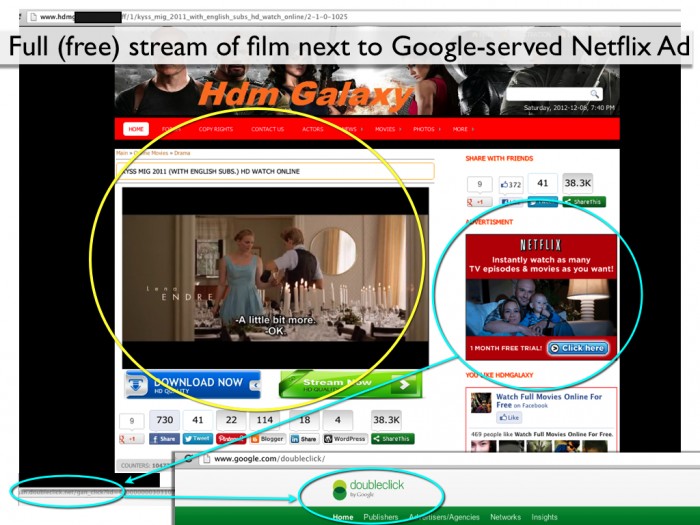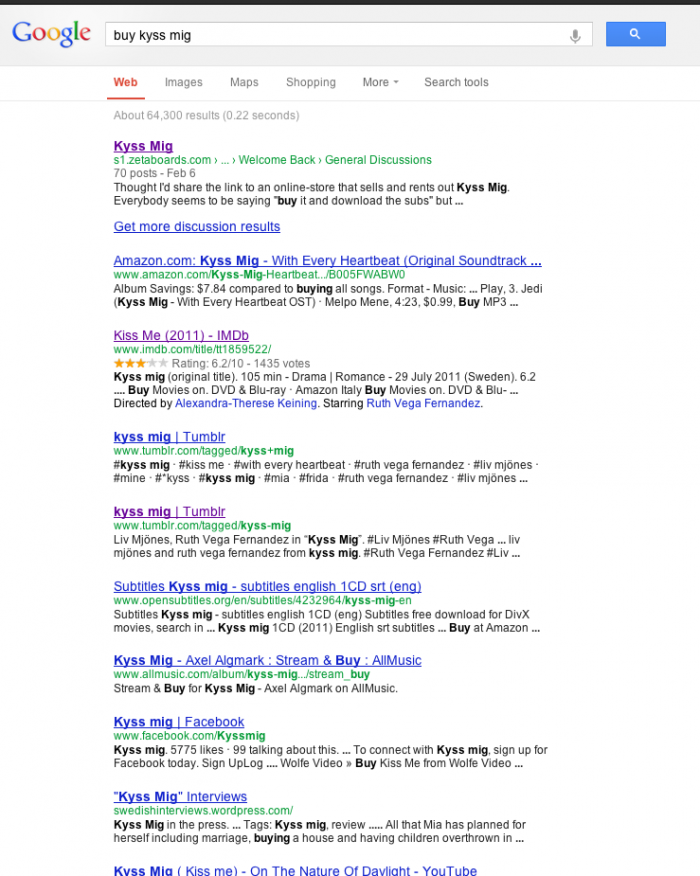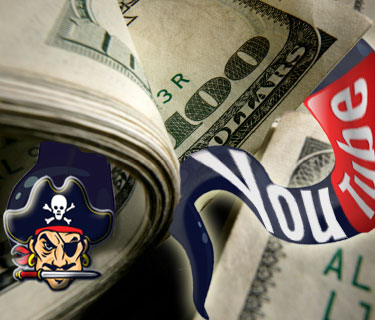 Black markets are endemic in criminal culture, so it’s not much of a surprise, given the popularity of Internet commerce, that an illicit economy thrives online. By now we’ve grown accustomed to finding pirated content and counterfeit products marketed on web sites across the world. What’s disturbing is how entwined (and dependent) some of these shady enterprises are on so-called “legit” companies and how complicit such companies have become in creating, sustaining, and profiting from these dubious activities.
Black markets are endemic in criminal culture, so it’s not much of a surprise, given the popularity of Internet commerce, that an illicit economy thrives online. By now we’ve grown accustomed to finding pirated content and counterfeit products marketed on web sites across the world. What’s disturbing is how entwined (and dependent) some of these shady enterprises are on so-called “legit” companies and how complicit such companies have become in creating, sustaining, and profiting from these dubious activities.
Google’s YouTube appears to be one such entity–a respected online portal favored by videophiles worldwide. Yet if you pull back the curtain, you’ll find that the site’s partner program facilitates–and reaps income from–a thriving crooked economy. It’s a racket that financially benefits the uploader, an intermediary and YouTube. Like a leech, its business (survival) model depends on a host (content creator) to thrive.
In a blog post published earlier this week, I outlined an instance where an industrious YouTube user had uploaded and monetized full-length feature films–films they did not own the rights to. In that piece I mentioned other instances I’d discovered whereby a number of YouTube account holders upload and monetize various movie trailers, most likely without permission from the rights holders.
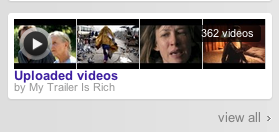 I recently found an example of this activity on YouTube channels published by the user “MyTrailerIsRich.” It’s an ironic, and apt, choice of moniker since his channels boast more than 51 million monetized views. If the trailer isn’t “rich,” this industrious YouTube entrepreneur might be well on his way to becoming so, thanks to his mastery of this monetizing scheme. I call these folks “pleeches” for short–content “pirates” that operate like leeches–hangers-on who cling to, and feed off (the work of) others for personal gain.
I recently found an example of this activity on YouTube channels published by the user “MyTrailerIsRich.” It’s an ironic, and apt, choice of moniker since his channels boast more than 51 million monetized views. If the trailer isn’t “rich,” this industrious YouTube entrepreneur might be well on his way to becoming so, thanks to his mastery of this monetizing scheme. I call these folks “pleeches” for short–content “pirates” that operate like leeches–hangers-on who cling to, and feed off (the work of) others for personal gain.
Here’s one of this pleech’s channel offerings. Note that it’s easy to navigate to the pleech’s other channels (TV Series, Indie Movies, Documentaries and Sci-Fi Horror) by clicking a handy menu atop the page. To date he’s uploaded 362 videos to YouTube.
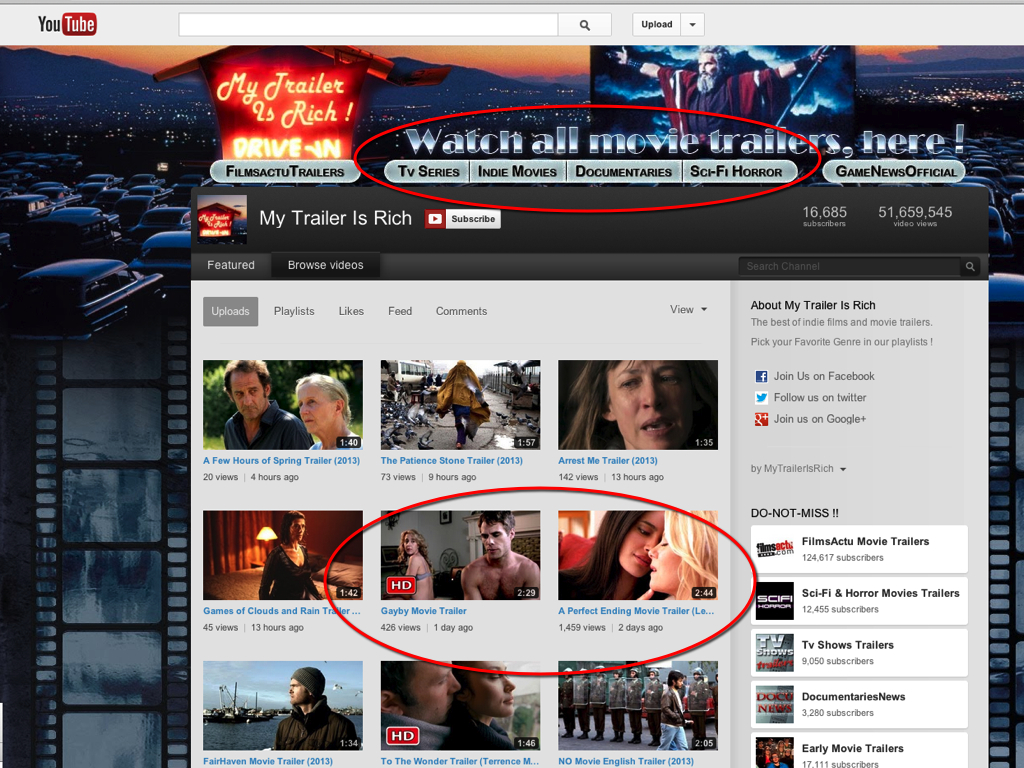
One of “MyTrailerIsRich’s” YouTube’s channel featuring trailers the user doesn’t own rights to but earns money off of.
A trailer for a recent indie release “Gayby” has attracted more than 350 views in just one day. Like the other trailers on this channel, it’s monetized with advertising and when I looked to see who claimed the trailer, I found this:
What’s worth noting about claim is that the “provider” is Wizdeo, an actual company based in France that’s serves as an intermediary to those seeking to monetize content online. Using YouTube’s Content Management System I researched the clip’s “ownership information.” According to the results, Wizdeo has claimed “worldwide” rights to this trailer. There’s just one problem; it’s not true. I spoke with 2 distributors who do own rights (in multiple countries) and neither has given this company permission to monetize the trailer. (This trailer was likely downloaded from YouTube via a distributor’s own channel).
I also found this trailer (shown below) for the upcoming release “A Perfect Ending,” uploaded four days ago (January 9th, 2013). It’s already attracted nearly 2,000 monetized views. Distributors for this film also confirmed to me that they did not give this pleech (YouTube user) or Wizdeo permission to upload and monetize this clip.
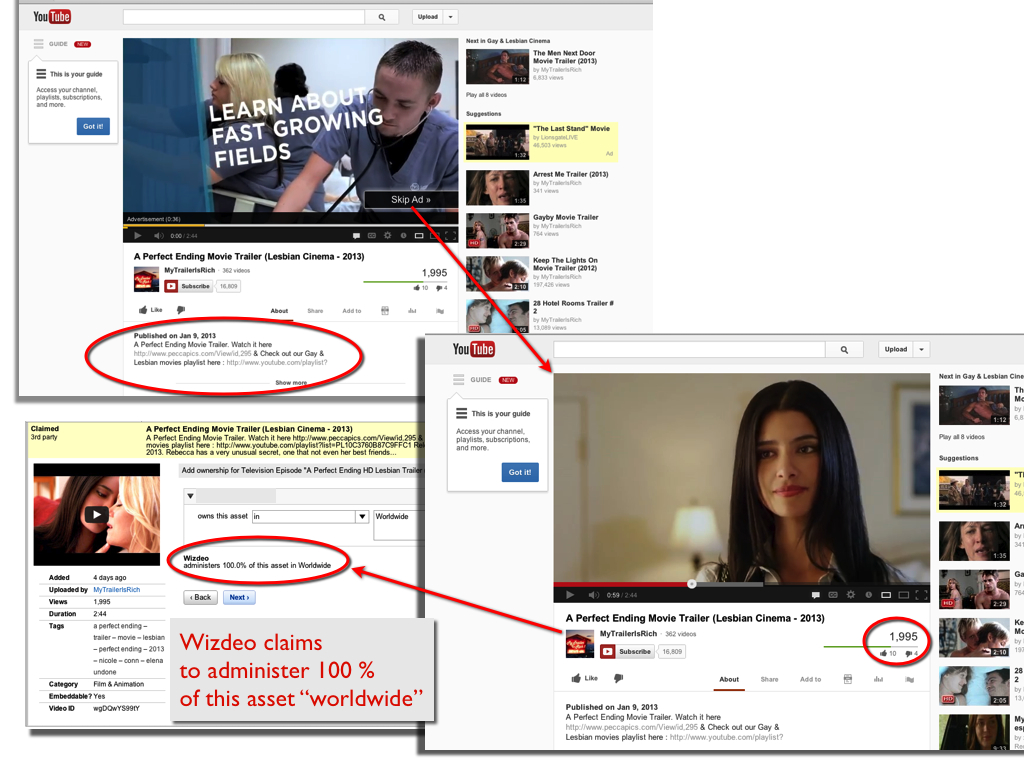
YouTube user “MyTrailerisRich” claims this asset (worldwide) through Wizdeo even though he doesn’t own the rights to it.
Wizdeo may well have a number of clients who legitimately own the content they upload, but since I’ve verified that this pleech does not own the rights to these trailers, it begs the question: What exactly does Wizdeo do to monitor compliance with its terms and, in turn, what does YouTube do to make sure that third-parties such as Wizdeo comply with YouTube’s terms of service? In this situation, it appears to be a case of “Who’s on first?”
Wizdeo’s terms for acceptance in their partner program includes the following language:
We will review your application before you notify our acceptance or refusal. We may reject your application if we believe that your string is not consistent with these terms and conditions…
(B) in any way violate the intellectual property rights. You must not distribute videos on your channel protected by copyright, which you are not the author, nor include in your video content that you do not have rights if you do not get authorization holders rights…
If a partner violates these terms, supposedly their account can be terminated:
In addition to any other rights or remedies available to us, we can at once or as the case may terminate this Program if we determine that you or other people, we establish that they are your affiliates or act in concert you (either as part of an existing partner account, either as part of a previously terminated account Associate)
- do not comply with any requirements or limitations described in one page “Requirements for participation in the Program Partners” or have otherwise violated these Terms or any Documentation operating
- have breached the Agreement distribution of audiovisual programs on the Internet, confirming your membership in our program,
Essentially, Wizdeo allows its users to create an account and then utilize Wizdeo’s drop-box account to upload content directly to YouTube. Using this setup, Wizdeo also acts as the financial intermediary (or bagman) and collects the resulting ad revenue from YouTube. They keep a portion of the proceeds; the uploader (in this case the pleech) gets a share, and YouTube/Google the rest. The actual rights holder earns zero.
In their terms of service, Wizdeo claims the company does not tolerate copyright infringement but it’s a claim that rings hollow. I spoke with a representative from another U.S. distributor who owns rights to a trailer that’s also posted on one of MyTrailerisRich’s YouTube channels. He said the company was familiar with Wizdeo and has had ongoing problems with them for the very reasons I’ve outlined. He told me that when the studio’s content management staff discovered trailers uploaded and erroneously claimed by Wizdeo, they corrected the claim via their YouTube CMS dashboard. Despite owning no rights for the trailer, Wizdeo reinstated the claim forcing studio staff to contact the Wizdeo tech department (in France) directly. If a distributor can’t come to an agreement to correct the claim, YouTube requires the aggrieved party to go to court if they want the video removed permanently. This can be an expensive proposition, particularly for those without deep pockets (like indie filmmakers).
Meanwhile, according to my source, they’ve made little progress in forcing Wizdeo to drop their false claim(s). It’s obvious as to why. The longer Wizdeo drags their feet, the more money they make. My source explained that if, and when, Wizdeo does eventually give up, the company knows it’s not likely to face any real consequences. Meanwhile, the cash keeps coming. Reviewing their terms of service, it becomes obvious that in this instance, Wizdeo’s legalistic homage to honoring copyrights is boilerplate bull.
YouTube instructs a rights holders to use their DMCA takedown procedure when they come across this situation and routinely ignore any direct correspondence on the subject. They also won’t acknowledge how much income is derived from this illegal commerce, nor do they refund any of the resulting income to a video’s rightful owner. As is typical for YouTube/Google, it’s a matter of “see no evil, hear no evil, speak no evil” when it comes to this dubious activity. Meanwhile, company balance sheets continue to grow. Missing from this scenario is the fourth monkey, “do no evil.”
Content monetization is a business model that works well for both those who seek legitimate profits, and those seeking illegitimate ones. For YouTube and its stockholders, the difference between the two is apparently irrelevant. This despite their own “YouTube Partner” criteria:
You may not be able to monetize videos which use any of the following without the explicit permission of the person who created or produced all material:
- Music (including cover songs, lyrics, and background music)
- Graphics and pictures (including photographs and artwork)
- Movie or TV visuals
- Video game or software visuals. Click here for details.
- Live performances (including concerts, sporting events, and shows)
For more information about content copyright requirements, please review the resources here.
YouTube also specifically includes movie “trailers” in its explanation of “what is copyright:”
Some examples of potentially infringing content are:
- TV shows
- Music videos, such as the ones you might find on music video channels
- Videos of live concerts, even if you captured the video yourself
- Movies and movie trailers
- Commercials
- Slide shows that include photos or images owned by somebody else
What you have here is a crime that falls through the cracks, not obvious at first glance, but insidious nonetheless. It’s a criminal business model that has seemingly become routine. YouTube can deny responsibility since Wizdeo provided the interface to upload and monetize the video, and Wizdeo can claim that it’s the “partners” who violated their terms of service by uploading content that’s not their own. Where exactly does the buck stop? Is this the sort of “safe harbor” envisioned by those who crafted the DMCA? Is it really acceptable for YouTube and Wizdeo to look the other way while pocketing loads of cash from what is clearly illegal activity?
Imagine how much money you could make if the dancing cat videos you uploaded to YouTube got 51 million hits? Some will argue that trailers are designed to publicize films and that this viral marketing is good for business. Of course having one’s trailer on YouTube is good for business. If I search YouTube for “Gayby” or “A Perfect Ending” I can easily find and view the legit versions uploaded by the film’s distributors. In fact, I can embed one right here on this website.
Theres no doubt viral marketing has become a fundamental part of modern-day film marketing. In most cases, distributors have no problem with YouTube users who upload and share trailers to films, but it should be left to the rights owner to monetize them, not the uploader or intermediaries. As host of the site, it’s reasonable that YouTube share in any revenues for legitimately claimed trailers, but beyond that, it’s basically theft.
Remember, even those who developed the Creative Commons license options have made the distinction clear. Creative commons licensors may be happy to allow sharing with attribution, but generally not content commercialization without compensation. The recent kerfuffle over Instagram’s proposed changes in their terms of service was also sparked by the fact its users did not appreciate the idea that the company would monetize uploaded photographs without permission.
This activity has clearly evolved into a cottage industry on YouTube and it’s clearly “good” for business for their bottom line– but the question remains, is it an ethical way of doing business? Not so much.
This post was first posted on Vox Indie.

